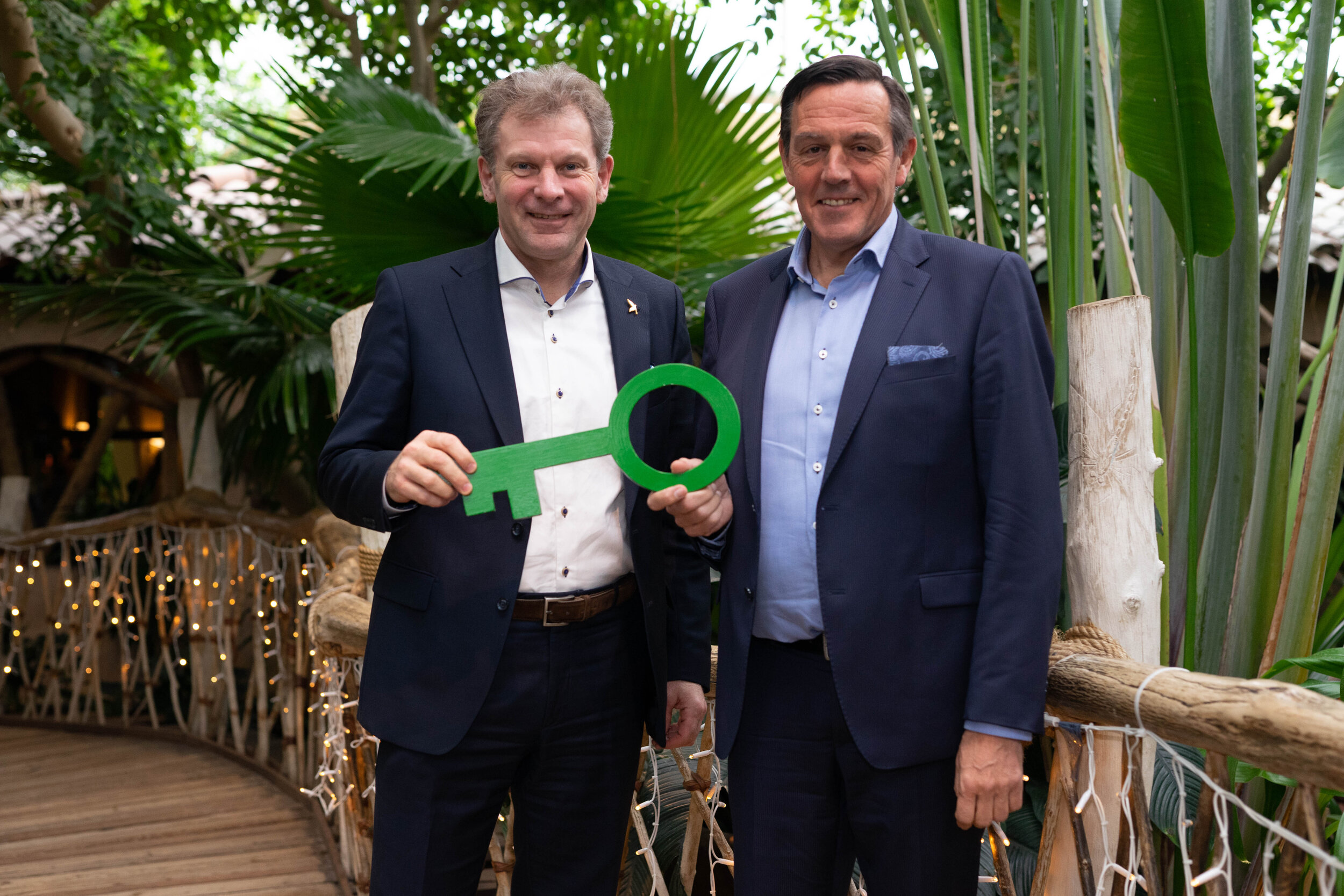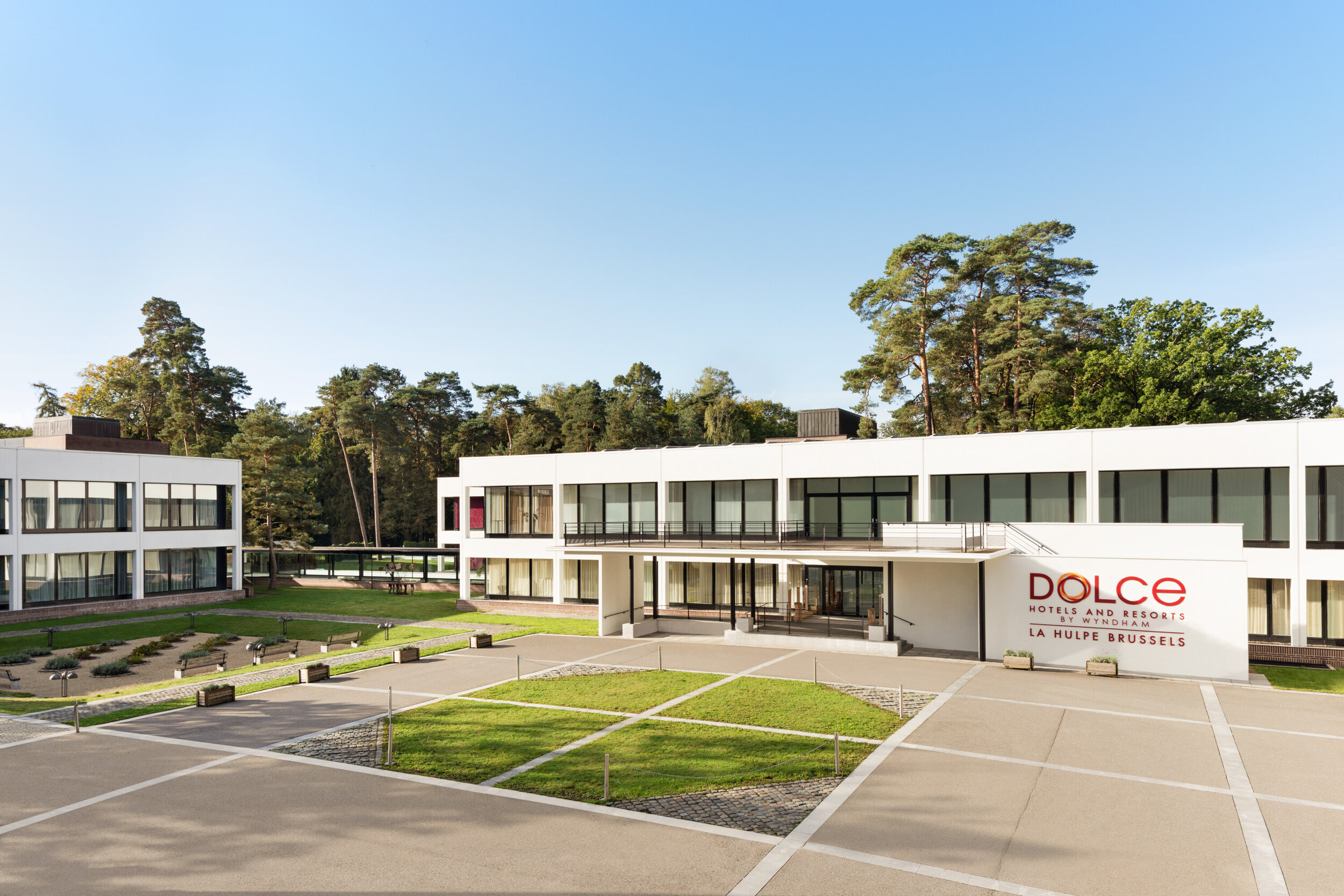24 Centre Parcs in the Netherlands, Belgium, Germany and France, as well as three Sunparks parks (operated by Center Parcs in Belgium), are now awarded the Green Key. This is an important milestone for the company that has thereby demonstrated its commitment to saving the environment while maintaining guests' comfort and quality.
De Kempervennen, the Netherlands
At the end of 2019, all parks in France, Germany, eight Dutch parks and five in Belgium were Green Key certified. Now comes the certification of the Belgian park Center Parcs Les Ardennes and the Dutch Center Parcs Parc Sandur.
According to Erwin Dezeure, CSR director Center Parcs Europe, the certification shows that Center Parcs is progressive in terms of sustainability and social engagement:
I am extremely proud that all our parks in Europe are Green Key certified. Achieving this certificate was our goal for 2022, but our parks have already achieved this two years earlier. This certification is a wonderful recognition of the many "green deeds" in our parks and a reflection of the sustainable ambitions of Center Parcs.
For example, on 1 January 2020, we said goodbye to disposable plastic and all the electricity in our parks is green. Smart thermostats and efficient showerheads in our cottages also ensure significant energy savings. Our CO2 footprint has decreased by more than 50% compared to 2010. Moreover, with a biodiversity plan for each park, we focus on a good mix so that people and nature are in complete balance with each other.
Erwin Dezeure and Paul Renders, Center Parcs
Finn Bolding Thomsen, Green Key International Director, adds:
We are very happy that a leading player such as Center Parcs is joining Green Key on a European level. In all its holiday parks in the Netherlands, Belgium, Germany and France, Center Parcs shows how seriously it takes people, hospitality, climate and environmental awareness. That is a result the company can be extremely proud of and from which all guests and the environment of the parks benefit. We hope that Center Parcs also inspires other establishments to reduce their environmental impact.
Excellent score on sustainability
Center Parcs was the first company in the recreation sector to meet the ISO 14001 and 50001 standards. After the audits, 27 certified parks now also meet Green Key's strict standards in terms of sustainability, the environment and corporate social responsibility. This includes environmental standards such as registering and saving on the use of gas, water and electricity and reducing the amount of (residual) waste. Moreover, the parks score very well on many optional criteria. These standards include, for example, sustainable measures such as the use of alternative pesticides, the provision of organic dishes in restaurants and organic products in supermarkets and the minimal use of mono-packaging. This also includes energy and water-saving measures that Center Parcs has taken in the Aqua Mundo, its activities to support disadvantaged people in the labour market and its cooperation with civil society organisations.
Strong reputation for sustainability
Center Parcs distinguishes itself through all kinds of activities for every family member in the middle of nature. They not only take care of nature but also of people: guests, employees and the community. Center Parcs works together with organisations that bring people and nature together, such as the World Wildlife Fund, to better pass on the planet to future generations. In addition, various animal species can be found in the parks and Center Parcs uses far fewer chemicals in its subtropical Aqua Mundo swimming pools than in regular swimming pools. Center Parcs brings people closer together, but also closer to nature. This is expressed in various initiatives within the "Good and Green Deeds" of Center Parcs.
Bispinger Heide, Germany
About Center Parcs Europe
For over 50 years, Center Parcs has been an expert in nature vacations throughout the year. As the founder of the short holiday close to home, Center Parcs has set a new standard in the recreation sector but also wants to continue to surprise its guests in the future. She does this by continuing to innovate and setting a new standard in the coming years in experience, stay and really being together. Center Parcs is characterized and distinguished by the countless activities for every family member because it is only really a vacation when everyone is having a good time, then you are really together.
Center Parcs Europe is part of Pierre et Vacances Center Parcs Group. Center Parcs owns 27 European parks in the Netherlands, Belgium, Germany and France. 5 million guests were received in 2018-2019 and the company achieved a turnover of 768 million euros.
For more information, please visit www.centerparcs.nl.

















